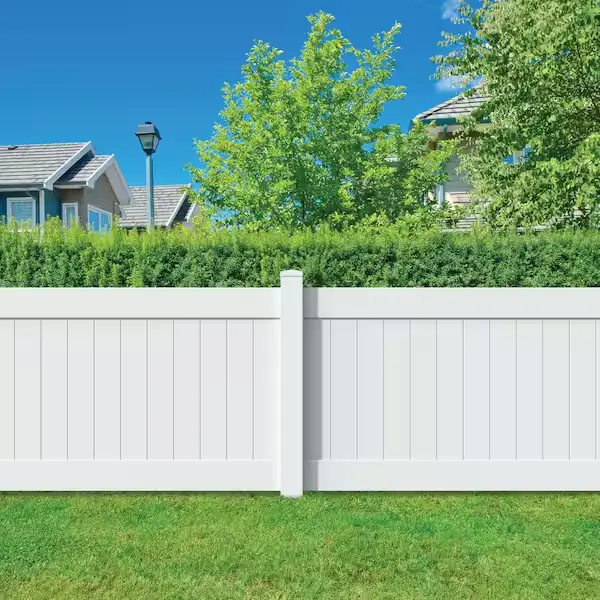What to Look for When Installing a Vinyl Fence in Florida
Vinyl fencing has become increasingly popular in Florida, and for good reason. As a durable, low-maintenance alternative to wood or metal, vinyl fencing offers excellent value for homeowners in the Sunshine State. However, Florida’s unique climate and environmental conditions present specific challenges that require careful consideration during installation. Here’s what you need to know before installing a vinyl fence in Florida.

Understanding Florida’s Climate Challenges
Florida’s climate is characterized by intense sun, high humidity, frequent rainstorms, and the occasional hurricane. These elements can significantly impact your fencing choice and installation process.
The intense UV exposure can cause inferior vinyl products to fade, crack, or become brittle over time. Meanwhile, high humidity and rainfall create soil conditions that may affect post stability. Hurricane-force winds demand structural reinforcement that might not be necessary in other regions.
Quality Vinyl Selection
When selecting vinyl fencing in Florida, consider these key factors:
UV Protection: Look for vinyl fencing with titanium dioxide or other UV inhibitors that prevent yellowing and deterioration from sun exposure.
Thickness and Construction: Choose fence panels with a minimum thickness of 0.06-0.07 inches. Hollow posts should have aluminum reinforcement, especially for taller fences that will face strong winds.
Wind Ratings: Florida’s building codes in coastal regions often require fences to withstand winds of 110-150 mph. Verify your fence system has been tested and rated for these conditions.
Heat Expansion Properties: Quality vinyl fence systems account for thermal expansion in hot weather with properly designed post and rail connections.
Foundation and Installation Considerations
The installation process is particularly important in Florida’s environment:
Deep Post Setting: Florida’s sandy soil often requires deeper post holes than standard installations—typically 30-36 inches versus the standard 24 inches—with additional concrete to ensure stability.
Drainage Solutions: Incorporate proper drainage around fence posts to prevent water accumulation during Florida’s heavy rains, which can compromise foundation stability.
Hurricane Reinforcement: Consider additional reinforcement methods like steel inserts for posts in areas prone to high winds.
Permitting and Regulations: Many Florida municipalities have specific fence height restrictions and hurricane-resistant requirements. Check local building codes and HOA regulations before installation.
Maintenance Expectations in Florida
While vinyl requires less maintenance than wood, Florida’s climate still demands some attention:
Cleaning Protocol: Plan to clean your fence 1-2 times per year to remove mold, mildew, and algae that thrive in Florida’s humid environment.
Inspection Schedule: Regular inspections after severe weather events are essential to identify and repair any damage promptly.
Long-term Performance: When properly installed, quality vinyl fencing in Florida should maintain its appearance and structural integrity for 20-30 years.
Professional vs. DIY Installation
Given Florida’s specific challenges, professional installation offers several advantages:
Experience with Local Conditions: Professional installers understand Florida’s soil variations and proper reinforcement techniques.
Code Compliance: Professionals stay updated on local building codes and wind resistance requirements.
Warranty Protection: Many manufacturers’ warranties remain valid only with professional installation.
Final Thoughts
Installing a vinyl fence in Florida requires careful attention to material quality, installation methods, and local environmental factors. By selecting UV-resistant, wind-rated materials and ensuring proper installation depth and reinforcement, your vinyl fence can provide decades of service despite Florida’s challenging climate.
The initial investment in quality materials and proper installation will pay dividends through reduced maintenance needs and longer fence lifespan—making vinyl fencing an excellent choice for Florida homeowners looking for durability and aesthetics in their property boundaries.